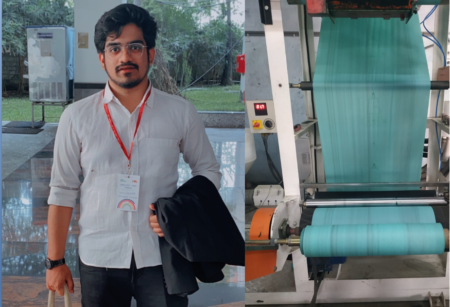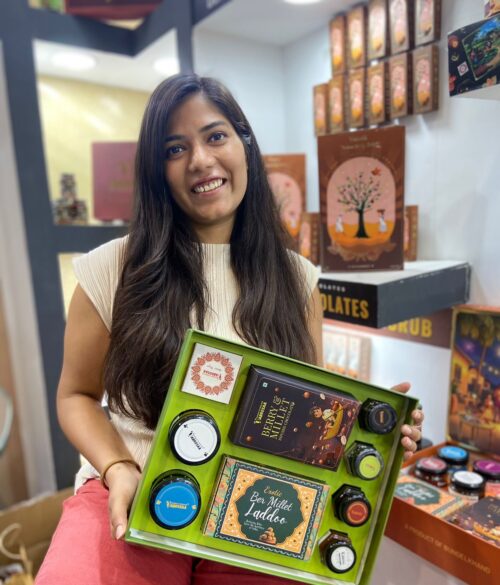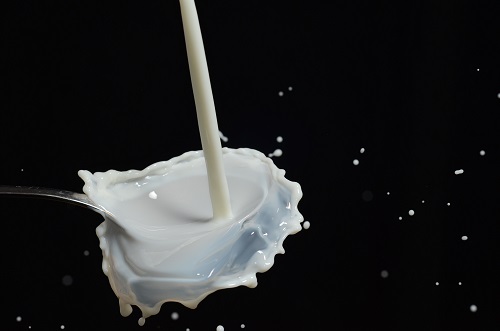Micro plastics in human blood! A recent study published by Environment International in the year 2022 revealed shocking facts on micro plastics presence in human blood. PET bottles used for soft drinks, polystyrene used in the food-service industry as disposable utensils and polyethylene used for grocery and garbage bag polymers were discovered in blood samples in research. It is true that most of us can’t recollect a day without plastic use knowingly or unknowingly. However, plastic disposal is a major challenge since its improper management is leading plastic to enter into our body in different forms.
“I understand plastic is one of the biggest challenges our societies are facing and we are not successful enough to deal with it, therefore I decided to play my part to address it. I was just a student, and had absolutely no idea and experience on how production and inventory management works, sourcing raw material sales and marketing to operate business. Now, I am glad that after a lot of blood, sweat and hustle, BioReform is evolving and working to address alternatives for plastic” told the brain behind BioReform, Founder & CEO, Mohammed Azhar Mohiuddin.
BioReform (BR), an Hyderabad based startup working on a mission to combat plastic pollution by spreading awareness and producing 100% biodegradable and compostable bags.
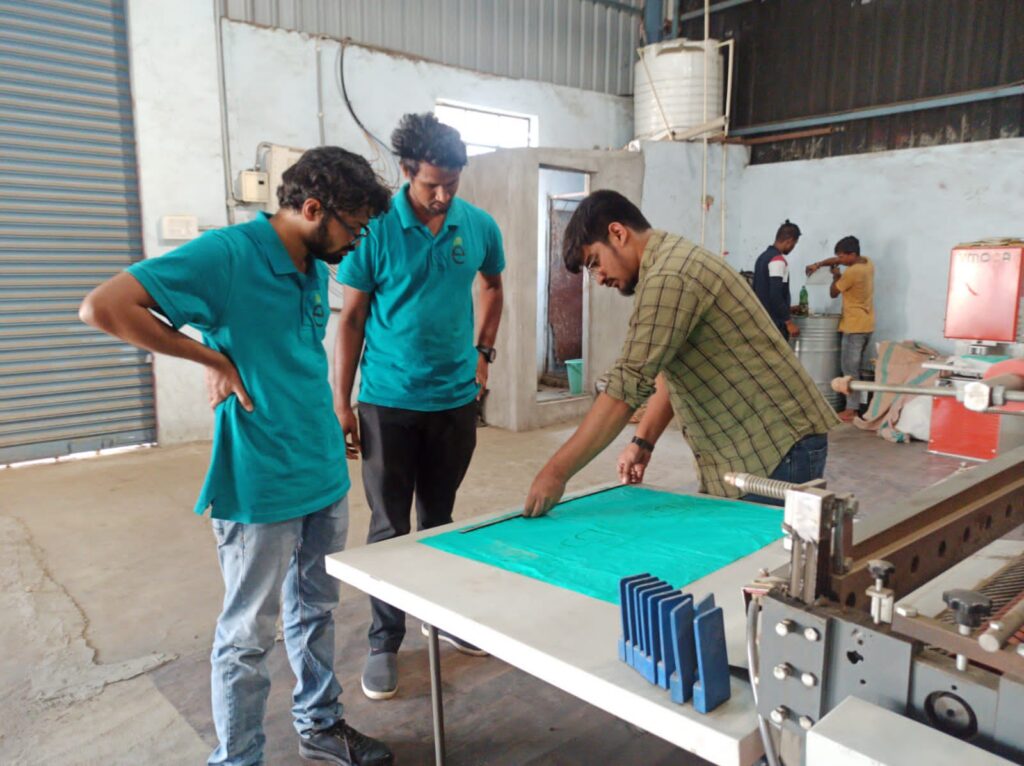
“When I got the idea of biodegradable and compostable bags, I applied to Edventure Park, a student focused startup incubator in hyderabad. This incubation equipped me with strategies to proceed further from building product, piloting, financial literacy and plan for go to market strategy. I worked to get the machinery to manufacture, set up the plant, operations, get early customers & launch GreenyBags in the market;Being a student it wasn’t really an easy job”.
As per Environmental Investigation Agency (EIA), an International NGO, 2.9 tonnes of CO2 are released into the atmosphere for each tonne of plastic packaging waste burned. Further, burning also creates and liberates new toxic chemicals into the food chain.
Responding to a question raised in Rajya Sabha, union minister of state for environment said in the year 2019-20 India generated an annual waste of 34,69,780 tonnes of plastic waste. An increase of 10 lakh tonnes of plastic waste compared to the year 2017-18; it was 23,83,469 tonnes for this year.
To combat pollution caused by plastic littering, the ministry of environment, forest and climate change (MoEFCC) notified guidelines in Extended Producers Responsibility (EPR) on plastic packaging. Under EPR single use plastic items which have low utility and high littering potential are prohibited.
To address plastic packaging related challenges, BioReform is envisioning to change the entire packaging industry towards green packaging by 2030. They manufacture 100% eco-friendly bags with the name Greeny bags. As per the company technology development team, BioReform bags are completely biodegradable and compostable in less than 180 days and leave no harmful residue behind. Materials like corn or cassava based extracts with other natural biopolymers are used in bag manufacturing. Besides, no chemicals are used in manufacturing; also this process uses less water and consumes less energy when compared to other plastic alternatives manufacturing processes.
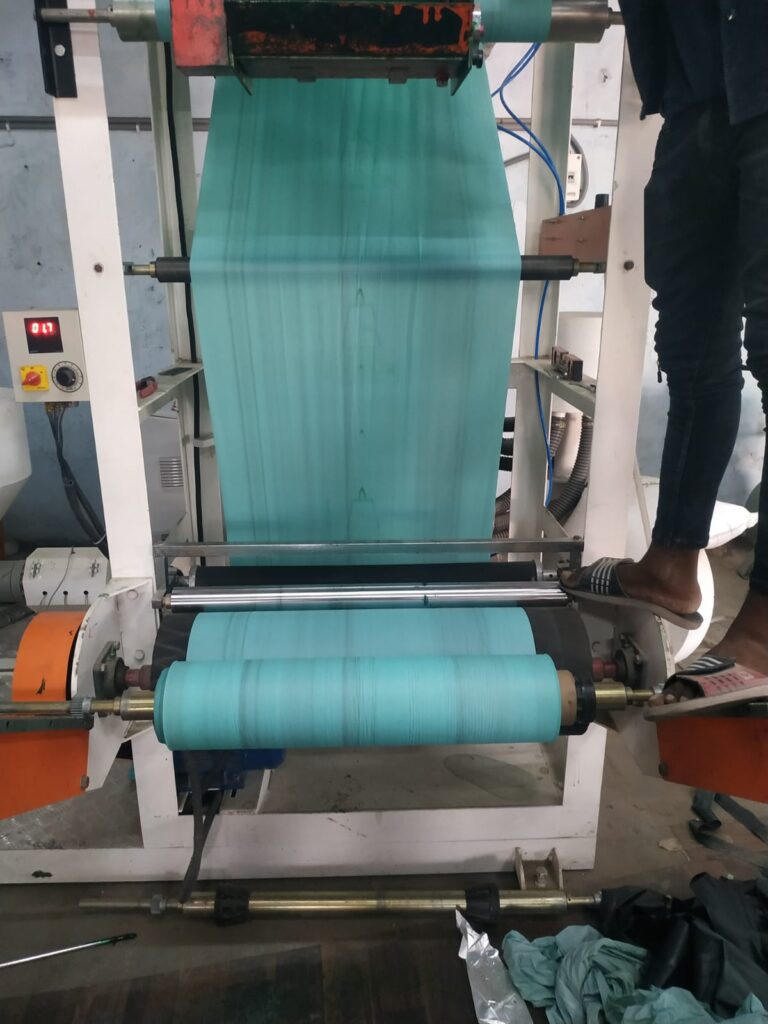
To meet the client requirement, Bioreform customizes biodegradable and compostable bags based on the requirements such as different sizes, thickness and brand printing.
On the policy level Azhar believes that the government should improve infrastructure to catalyze new eco-friendly technologies, source and availability of raw material. Further, he thinks the government should give incentives and lay tax rates less on eco-friendly products to make them more attractive to consumers.
This is one of the examples of how natural biopolymers are promising biodegradable packaging solutions. It is time to invest in such natural biopolymers, however it shouldn’t hurt the food supply chain.
Let’s innovate for sustainable packaging and become part of green recovery.
Share your green story!


